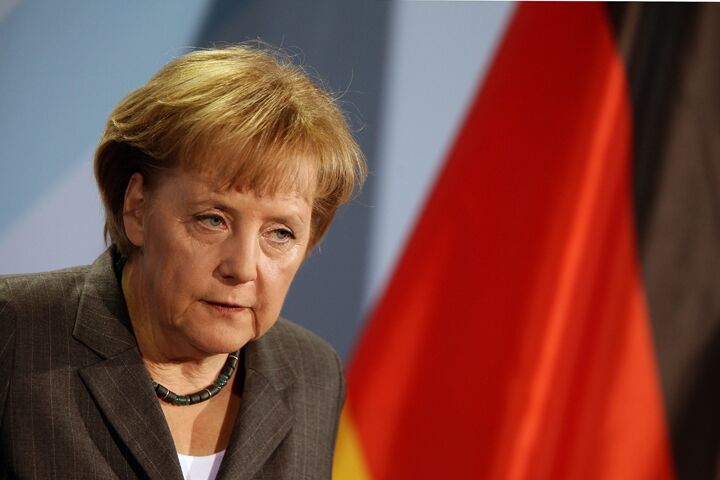
Merkel’s Silent Summit
On January 17, Germany’s Chancellor Merkel held a summit meeting with her fellow coalition party leaders, Free Democratic Party (fdp) leader Guido Westerwelle and Christian Social Union (csu) leader Horst Seehoffer. Merkel’s own party, the Christian Democratic Union (cdu), the csu and the fdp are at complete odds on a number of crucial questions currently being debated in the German parliament, namely dealing with Germany’s ailing economy, taxation and health reform, and the war in Afghanistan. The public is not impressed.
A survey taken by the Bild newspaper showed that “Overall, Bild.de readers’ opinion of the black-yellow government produced a lousy result: 60 percent of more than 54,000 participants are of the opinion that ‘black-yellow is a disaster. And that will not change’” (January 20; translation ours here and throughout). Hence Merkel hunkering down last Sunday, in secret, with Westerwelle and Seehoffer in an effort to stem the bleeding in her deeply wounded coalition government.
The best part of a week has passed with not one whisper of what took place at Chancellor Merkel’s secret summit. Not one leak of the contents of the three-hour discussion in which these coalition leaders engaged has emerged to date. The Bild newspaper called it “The Silent Summit.” On the afternoon of their meeting, even the weather matched the chill that often blows across the coalition leadership’s relations (January 17):
Light snow, 2 degrees below zero, the Berlin Chancellery on Sunday afternoon, shortly before 4 p.m. First, the Audi rolls up with the chancellor. Then csu chief Horst Seehofer follows, flits into the building. Finally the fdp Vice Chancellor Guido Westerwelle. Location: Merkel’s semi-private rooms on the 8th floor of the Chancellery. The crisis summit begins. But for the public it turned out rather to be a summit of silence.
Because there was no fixed agenda and no decisions, no official statements—it was simply only six heads talking, until just 7 p.m. Thus Chancellor Angela Merkel (cdu), Seehofer and Westerwelle (fdp) hoped yesterday to put the stumbling start of the black and yellow coalition behind them. … But there are still no real decisions. Meanwhile, whether the coalition leaders will be able to make peace within their own ranks remains open.
Chancellor Merkel is obviously under siege right now, considering the hard time her coalition partners are giving her. In parliament on Wednesday she defended criticism of her leadership of the government. “Facing a sharp decline in her popularity and growing public disappointment with the new center-right coalition government, Chancellor Angela Merkel of Germany on Wednesday defended her coalition’s handling of the economic crisis, insisting that the country’s continued spending despite record debt prevented it from ‘falling into the abyss’” (New York Times, January 21).
Though the liberal press in Germany is tending to play up what has become known as “the Kunduz affair” (betraying its being in the pay of liberal opponents of Germany’s highly popular minister of defense, Karl-Theodor zu Guttenberg), the real story of the moment in German politics is the rapid decline of Chancellor Merkel’s once shining political star.
Merkel’s poll ratings have dropped substantially since her new government took office barely three months ago. The New York Times commented (ibid.):
Mrs. Merkel’s coalition of conservatives and the pro-business Free Democrats—dubbed the dream coalition because of its supposed compatibility over economic and social changes—has been embroiled in squabbles involving sharp differences over tax cuts, a tax overhaul, relations with Poland and the war in Afghanistan. These have hurt Mrs. Merkel and her party in the opinion polls.
The German public television channel ard last week published its monthly poll showing falling public support for Mrs. Merkel. … The ard polls … found that 77 percent of those asked were not satisfied with Mrs. Merkel’s second term, mainly because of the divisions and squabbles.
By contrast, despite the drubbing that Guttenberg has received at the hands of the liberal press and government opposition parties all baying for his blood, Guttenberg’s opinion ratings could hardly rate higher. He continues to remain Germany’s most popular politician by far, and in current German politics it’s popularity with the public that counts.
On Wednesday, Bild published the results of an opinion poll on Germany’s coalition ministry. The results affirmed that the Kunduz affair has certainly not tarnished Guttenberg’s bright image in the eyes of the public. “Since his rapid start as a government minister in February 2009, Karl-Theodor zu Guttenberg (38, csu) has stood at the top of the popularity scale of Bild.de readers. This is confirmed by the current survey. Number one is the current Minister of Defense [Guttenberg]; the Kunduz affair has obviously not hurt him” (January 20).
Though the coalition leaders remain closed lipped about their “silent summit,” one thing cannot be hidden from either the government or the public. As Merkel’s star falls, Guttenberg’s continues to rise. He remains the man to watch in German politics.
